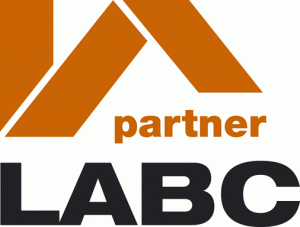| the Christopher Huntpractice architectural and building design for residential development |
|
Site
Menu
 |
|
|
Guidance on Builder
Selection. A few basic rules can eliminate a lot of the risk. GUIDANCE ON BUILDER SELECTION INTRODUCTION
There is no guaranteed way of selecting a suitable builder that will ensure that your scheme is built on time, to spec. and on budget. Even the most tried and tested methods can result in tears for either the building owner or builder themselves for all sorts of reasons including personality conflicts. However, there are a few precautions and procedures you can adopt to ensure that the risk of wrongful selection is kept to a minimum. These are as follows:- 1. - RECOMMENDATION Ask around. Consult family and friends of their previous building experiences and whether they would recommend their own builder for any future work that you or they themselves may be considering. 2. - AGENTS CONTACTS Planning and Building Design Agents usually have numerous contacts within the building profession. However, Agents do not like to promote any one particular Builder for ethical and codes of conduct reasons so you may be given a list a ‘known builders’ for you to either consult yourselves or use as part of the tendering process. 3. - REFERENCES Any respectable builder will be able to provide you with at least 3 references of previous work which should be very recent and within the last year. Take up those references and take time to research the builders history. 4. - TRADE ASSOCIATIONS and WARRANTY SCHEMES Some builders belong to trade associations such as NHBC, FMB etc. Remember that most trade associations are primarily to look after the builders interest as any revenue they collect is from the builders themselves. However, some offer warranty schemes should failures occur either in the work completed or the ruining of the builders finances etc. These warranty schemes are not free and are often insurance backed with a premium based upon a percentage of the contract price. They can significantly add to the cost of a building project and you should consider its relevance and value to your own particular situation. Some of these builders have higher operating overheads such as dedicated offices, yards and full time employees which is often reflected in their tender prices so they are often discounted by the building owner seeking the lowest possible price. However, there is an aspect called ‘best value’ where often the cheapest quote does not guarantee best value so please think twice before accepting the lowest price from an unwarranted builder. Remember that employing a trade associated builder in still no guarantee of quality but it does reduce the risks. Many builders are commonly termed ‘jobbing builders’ working from home and employ sub-contract labour as and when required. These builders often do not belong to any trade bodies and therefore unable to offer warranties or back up administration services. However, it is predominantly these types of builders that complete extension works due to their lower overheads and margins. These builders should not be overlooked or categorized as unworthy as many have excellent trade skills, managerial assets and are happy just going from job to job. However, regretfully most builders associated with the ‘cowboy’ element can come from this arena and you must do your homework first. Employing a builder for work completed ‘cash in hand’ may be very tempting but you are at risk of falling into the usual traps and encouraging this ‘tarnishing’ element upon other very respectful jobbing builders. 5. - LIMITED OR UNLIMITED BUILDERS Most builders operate under the limited company status and it must be remembered that their financial responsibility to the building owner is very limited although most people seem to respect the Ltd. status far more than unlimited Builders. Builders that are unlimited may have additional assets at risk and therefore could offer the extra bonus to yourselves in the event of contractual breakdown or defects. 6. - FORMS OF CONTRACTS There are various forms of contracts available to the building owner including forms from JCT and the Federation of Master Builders. The latter offer a very simple and straightforward contract that would be suitable for most extension works. Some building owners rely on an exchange of letters agreeing to start and completion dates, payment terms, liquidated damages etc. based upon the information shown on the drawings and specifications supplied by your Professional Agent. This is also a suitable method of contract provided your Agents Plans are concise in most areas and you are reasonably satisfied with your selected builder. 7. - PAYMENT TERMS These are normally agreed within the contract used and by mutual agreement. However a few golden rules to observe are:- Never pay in advance of the works, always pay for work done and try and withhold a small retention (say 5%) as a sum on trust to ensure that any defects will be put right by the builder within 6 months of completion. For works longer than say 2 weeks it is customary and fair to agree to stage payments either agreed in advance or costed on site as work proceeds. 8. - OBTAINING PRICES OR TENDERS Always telephone the builders first to check their availability and to see that they are interested in tendering for the described works. Many builders in very busy times tend to ‘cherry pick’ the work but will not want to formally refuse the project for fear of not being offered other work in the future so they tend to ‘forget to price’ leaving you waiting in limbo for several weeks. Always make sure that they personally visit site and discuss things through prior to submitting a price. Give them a defined tender return date of say 3 weeks and be prepared to chase them 5 weeks later. Most builders are very good at what they do but their administration procedures are sometimes lacking especially those working from home. Please remember that it takes a lot of work and effort for a builder to price a job correctly especially if he is obtaining prices from subcontractors such as plumbers and electricians etc. who often let the main contractor down. Therefore, please respond to ALL BUILDERS quotations and DO NOT ignore the unsuccessful prices. The biggest complaint from builders is that they spend a lot of effort completing prices and some may have even paid for a quantity surveyor to hear nothing further from the building owner. It is customary and helpful to all unsuccessful tenders to advise them of the successful price so that they can see if their margins or profits are wide of the mark for any future work and this can only benefit building owners in the long run. You do not have to advise them of the successful builder. 9. - INSURANCES This is usually a very big grey area that needs to be clarified before the builder starts on site. All builders should have Third Party Liability insurance of say 5 million pound and you are advised to check that they have a current policy. This insurance only covers third party claims eg if a scaffold tube falls into your next door neighbours green house or worse. Most good builders have additional insurances that cover the cost of the contract in hand. There are also ‘ALL RISKS’ policies to cover the entire site value and not just the contract but these are often very expensive and need to be made out in joint names between the building owner and the builder. You should try and establish that he has adequate cover, if required, and that he only employs bonafide sub-contractors having their own insurance or, extensions to the builders insurance that allow for his sub-contractors. You also have duties to advise your own buildings insurer that you are having building works completed and get them to confirm that you are still covered. Additional premiums may be required to gain insurance extensions for the works. Failure to inform them could lead to loss of a claim as building works are usually perceived to carry additional risks to a building that require notification to insurers - DO NOT fall into the ‘technical trap’ so often used these days by insurers as reasons not to pay a claim. 10. - EXTRAS Building owners often fall into the ‘oh while your here’ trap and engage the builder to complete additional works without obtaining fixed quotations first or under the assumption that the works are included or will be very cheap as the builder is here anyway! - wrong - very wrong. Builders are in business to make money and extras are often seen as ways to make up for cut throat margins. The ‘Golden Rule’ is to avoid altering the scheme from that approved and priced and do not engage the builder for extra works unless the item of work is quantified, described and costed in full before your written acceptance. If variations to the contracted works are required then get it agreed and costed in writing before implementing the works and keep a running total of the ‘adds and omits’ for easy adjustment of the contract sum later on. This area alone, in my opinion, accounts for the majority of disputes between builders and their clients. - you have been warned. 11. - UNFORESEEN ITEMS Sometimes, very rarely, items are exposed on site that need alternative or extra works to overcome the problem eg. - exposing an old underground well or finding structural differences in the exposed building structure. Should this occur, most Building Design Agents will be able to visit site and assess the works required and offer an alternative design solution which may or may not be chargeable to the client depending upon circumstances. However, it is very likely that the works will result in extra building costs to the client and CHP recommends having a realistic contingency sum within the contract price to allow for these unforeseen items. If none arise and the clients has not asked for any extra works then the contingency sum is removed from the final contract price.
|
Christopher Hunt MCIAT is not an Architect or a member of the RIBA but a Chartered Architectural Technologist - a professional building designer specialising in residential development from home extensions to new builds including conversions and refurbishments. He is a full member of CIAT which is a different and alternative qualifying body for professionals dealing with building design. If you specifically want an Architect click this link Home page About us Previous schemes gallery Client guides Client options after approval Construction News CIAT News Resources Home Building Contact Us Site Map |
|
|
|
|
Client Area:- Visit our Social Network Pages |
|
|
Work Areas
Residential development for household extensions, conversions and new dwellings. Measured surveys and roof inspection reports. Drawing plans on cad and specifications for planning permission, planning consent, planning approval, local authority approvals, building surveys and party wall act. Chartered Architectural Technologists belong to CIAT (the Chartered institute of Architectural Technologists). Key search phrases include - building designers, extend your home, extension guide, permitted development, planning advice, planning guide, planning gain. |
|
|
Article of the month:- Home building design ideas....
|
This page last updated:
© Copyright Christopher Hunt 2014. All Rights
Reserved.
|


 The following statements are a general overview of Christopher Hunts experience in
dealing with builders. The views and opinions offered by the author are intended as a ‘guide’ to assist a
prospective client in selecting their builder. The views may not be concise and may even conflict with other
recommendations. The client is therefore recommended to seek as many alternative views as possible before
selecting a builder.
The following statements are a general overview of Christopher Hunts experience in
dealing with builders. The views and opinions offered by the author are intended as a ‘guide’ to assist a
prospective client in selecting their builder. The views may not be concise and may even conflict with other
recommendations. The client is therefore recommended to seek as many alternative views as possible before
selecting a builder.





